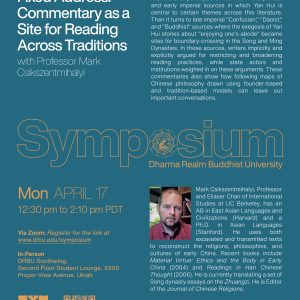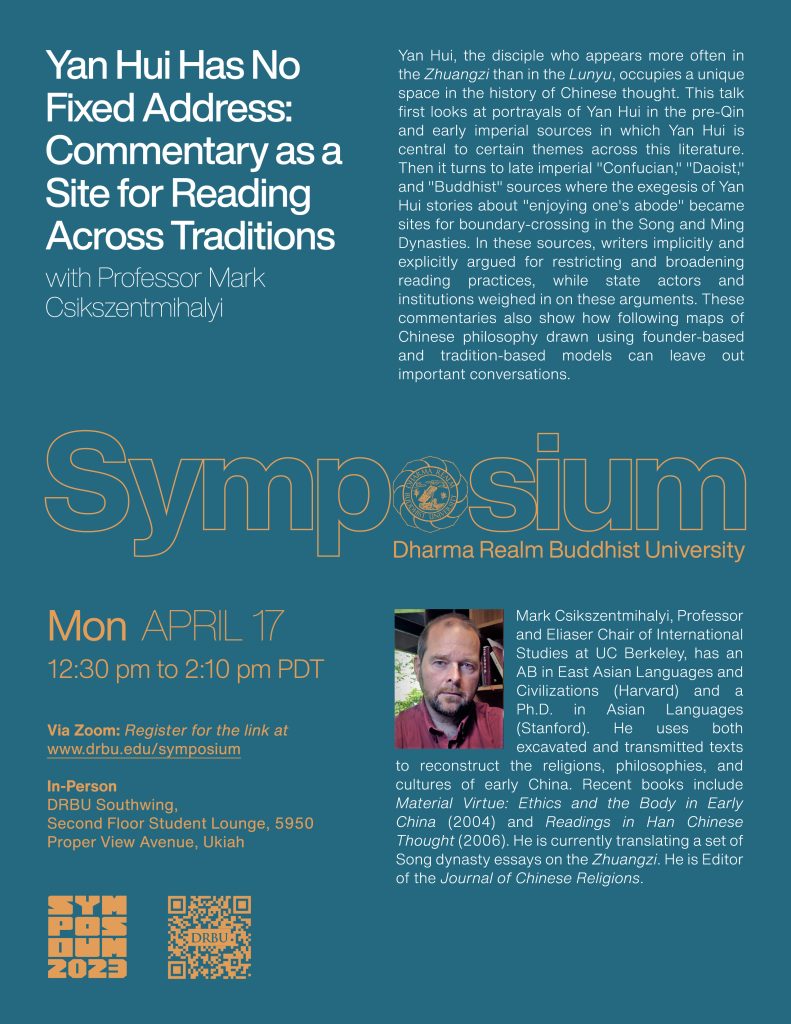
Yan Hui Has No Fixed Address
Ukiah, CA 95482
Yan Hui, the disciple who appears more often in the Zhuangzi than in the Lunyu, occupies a unique space in the history of Chinese thought. This talk first looks at portrayals of Yan Hui in the pre-Qin and early imperial sources in which Yan Hui is central to certain themes across this literature. Then it turns to late imperial "Confucian," "Daoist," and "Buddhist" sources where the exegesis of Yan Hui stories about "enjoying one's abode" became sites for boundary-crossing in Song and Ming exegesis.
Yan Hui, the disciple who appears more often in the Zhuangzi than in the Lunyu, occupies a unique space in the history of Chinese thought. This talk first looks at portrayals of Yan Hui in the pre-Qin and early imperial sources in which Yan Hui is central to certain themes across this literature. Then it turns to late imperial “Confucian,” “Daoist,” and “Buddhist” sources where the exegesis of Yan Hui stories about “enjoying one’s abode” became sites for boundary-crossing in Song and Ming exegesis. In these sources, writers implicitly and explicitly argued for restricting and broadening reading practices, while state actors and institutions weighed in on these arguments. These commentaries also show how following maps of Chinese philosophy drawn using founder-based and tradition-based models can leave out important conversations.
Speaker Bio
Mark Csikszentmihalyi, Professor and Eliaser Chair of International Studies, has an AB in East Asian Languages and Civilizations (Harvard) and a Ph.D. in Asian Languages (Stanford). He uses both excavated and transmitted texts to reconstruct the religions, philosophies, and cultures of early China. Recent books include Material Virtue: Ethics and the Body in Early China (2004) and Readings in Han Chinese Thought (2006). He is currently translating a set of Song dynasty essays on the Zhuangzi. He is the Editor of the Journal of Chinese Religions.
